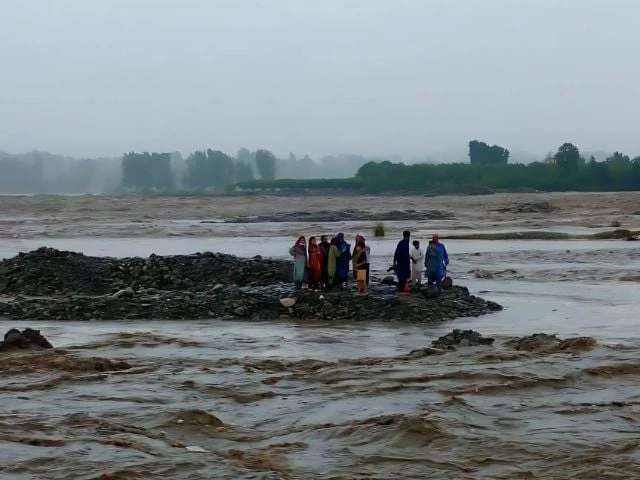A devastating report following the recent Swat flash flood has uncovered a tragic disconnect between timely official warnings and a delayed, poorly equipped rescue response. The incident, which resulted in the drowning deaths of 12 family members visiting from Sialkot, has triggered widespread calls for accountability and systemic reform in Khyber Pakhtunkhwa’s disaster management.
On June 27, the Khyber Pakhtunkhwa Irrigation Department issued multiple flood alerts through WhatsApp and other communication channels. The river flow at Khwazakhela surged from 6,738 to 77,782 cusecs within hours. The first alert was shared at 8:41am, warning district authorities in Swat, Charsadda, and Nowshera. A severe flood warning was dispatched by 10:30am, followed by real-time updates to the PDMA, assistant commissioners, and other stakeholders.
Despite these proactive alerts, rescue services arrived nearly 19 minutes late to the scene where 17 family members had been stranded on a fast-eroding river mound. Distressing footage circulated online showed the group trapped and pleading for help a response window that proved fatal due to lack of boats, ropes, and professional divers. Rescue gear had to be requested during the operation, causing further delays.
The report also highlighted environmental hazards exacerbating the crisis, including unchecked silt accumulation since 2022, which had made the riverbed more accessible to tourists. This false sense of safety encouraged deeper wading, putting lives at risk as water levels rapidly rose.
Furthermore, illegal encroachments near the riverbanks have drawn sharp criticism. Structures built within 200 feet of the river were allowed despite safety regulations, raising serious concerns about the issuance of No-Objection Certificates (NOCs) and building permits.
In response, the Khyber Pakhtunkhwa government has banned mining along riverbeds, launched a province-wide crackdown on illegal construction, and vowed to hold responsible officials accountable. However, public sentiment demands these efforts be free from political or economic bias.
The Irrigation Department has urged urgent steps, including:
- Providing Rescue 1122 with proper flood rescue equipment.
- Restricting tourist access during high-risk periods.
- Holding hotels and tour operators accountable for negligence.
- Installing additional telemetry gauges in Madyan and Kalam for early flood detection.
- Developing clear policies to confine tourists to designated safe areas.
The Swat River tragedy stands as a painful reminder that early warnings are only effective when matched by swift, well-coordinated action. Unless immediate reforms are implemented, the region remains vulnerable to repeat disasters, with the cost measured in human lives.



Comments (0)
No comments yet. Be the first to comment!
Leave a Comment